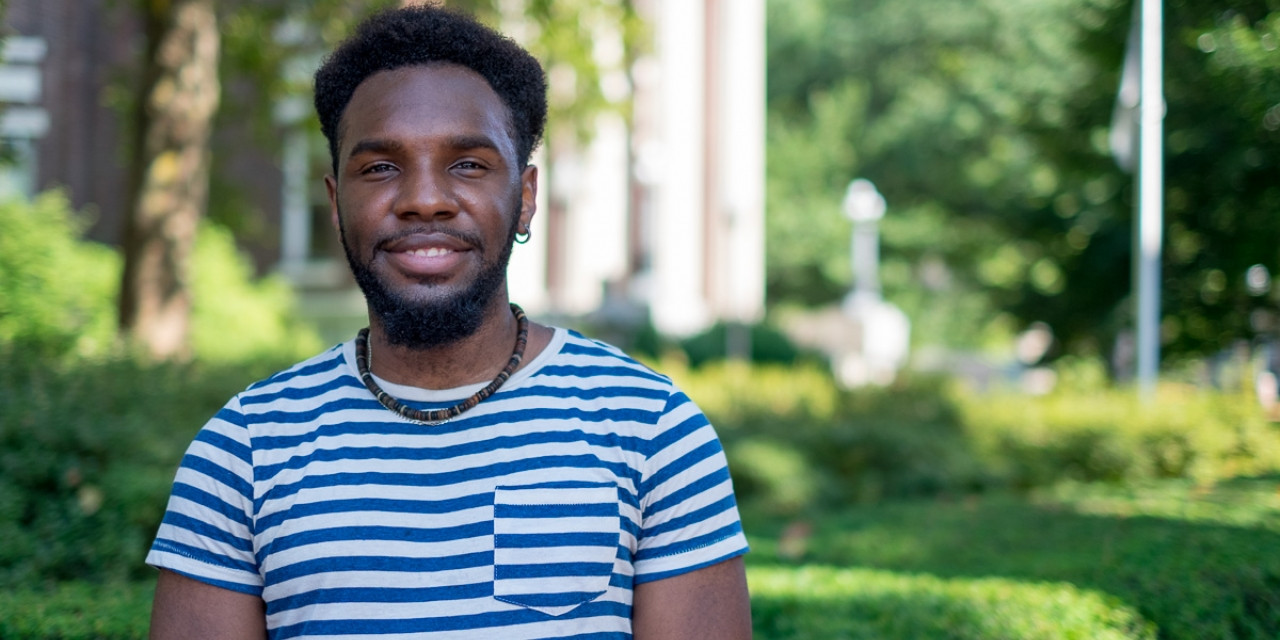James Martin, PhD Candidate in Biological Sciences

Where did you grow up?
East New York, Brooklyn.
What drew you to your field?
Science fairs, Animal Planet, and Bill Nye the Science Guy were staples of my childhood, and made pursuing a career as a scientist seem like a natural choice. My specific love for structural biology came when I took a biochemistry course in undergrad and realized that proteins are not only one of the important building blocks of life, but also the molecular machines that drive the processes of our body. The biology mantra “structure determines function” also incited my passion and curiosity for this field; I realized that to better understand these complex biological processes, I must study and characterize the structure of its main players: proteins!
How would you explain your current research to someone outside of your field?
My technique of choice for studying proteins is Nuclear Magnetic Resonance (NMR) spectroscopy; a common application of this technique is Magnetic Resonance Imaging (MRI). However, unlike MRI, in which you image soft tissues in the body such as the brain or heart, I use NMR to examine the dynamics and structural properties of a protein called Ribonuclease HI (RNase HI). This protein plays a key role in the retroviral replication of many viruses like HIV and MLV (Murine Leukemia Virus), and studies have shown that a malfunctioning RNase HI in these viruses halts their replication. Molecular dynamic (MD) simulations have found two in silico conformation states for this protein: “open,” in which it’s able to bind to substrate (active), and “closed,” in which it’s unable to bind to protein (inactive). The normal state of the protein is predominantly in an “open” conformation, but a mutation from these simulations was found that switches it to a “closed” state. My project aims to confirm experimentally the two-state “open” and “closed” conformer model, as well as the finding that this mutation from the MD simulation is indeed “closed” in vitro.
Is there a common misconception about a topic in your field that you wish you could correct?
My research topic, like others, is very niche. Getting my PhD in biology doesn’t mean I'm an expert in climate change or animal biosciences.
What do you consider your greatest achievement?
Mentoring other students and inspiring a passion for education in them.
Who is your hero of fiction?
An actual hero from a television series that I’ve been watching called Black Lightning. The titular character spreads a passion for education within his community and protects his city from crime while balancing family life.
Who are your heroes in real life?
My mom, for the persistence and never-ending optimism that she exudes, and President Barack Obama, for being a trailblazer and keeping his poise.
What music have you been listening to lately?
A mix of old-school R&B and new-school conscious rap. In the last week, I’ve been listening to Erykah Badu, J. Cole, and Kendrick Lamar.
What is your favorite blog or website?
I’m a big sports fan, so I’m constantly checking ESPN.com daily.
